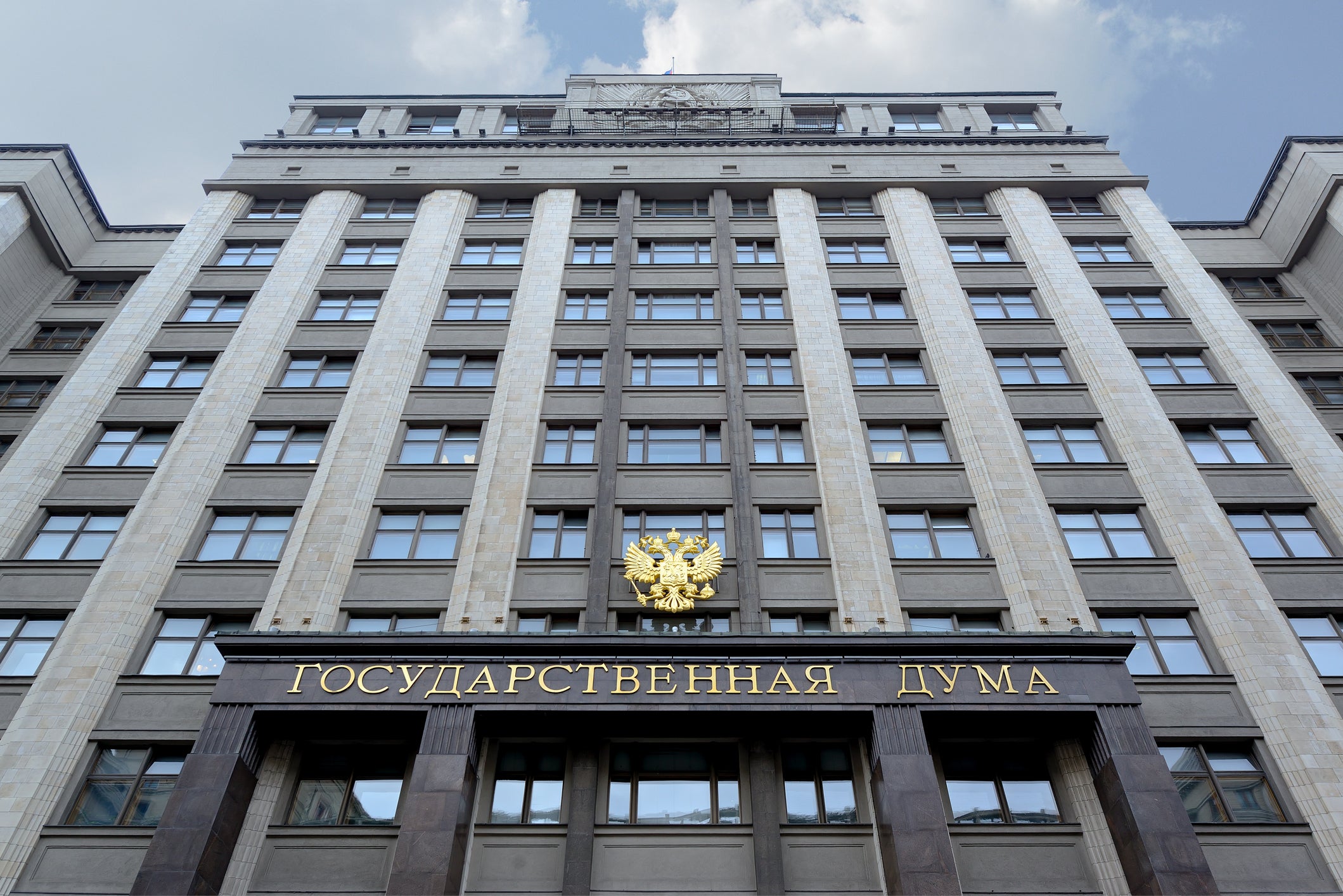Putin’s media crackdown is a sign of weakness
Editorial: The new law against ‘fake news’ in Russia is a sign the regime fears it is losing the battle against the truth in Ukraine

It was the last shred of the mask of liberal democracy; now, Vladimir Putin has torn it off. He tolerated independent journalists, both within Russia and from abroad, for some time after he had ceased any pretence of being either liberal or a democrat. For years, the dominant state-controlled media in his country has fed its people a diet of myth and propaganda.
Now, with the invasion of Ukraine, President Putin has abandoned most of the pretence. Until 10 days ago, it was just about possible for him to pretend that the population of Crimea wanted to be part of Russia, and that there were no Russian soldiers in the eastern Ukrainian provinces.
Now, the gap between totalitarian language and the truth is too wide to be bridged. Everyone with access to independent media knows that the Russian invasion is not a “special operation”, that there has been no “genocide” of Russian-speaking people in Ukraine, and that Volodymyr Zelensky, the (Russian-speaking) Ukrainian president, is not a Nazi.
Anyone who reads articles by independent Russian journalists, or follows Russian celebrities on social media, or reads The Independent, or watches the BBC, can see the contradiction between Mr Putin’s claim to respect national self-determination and his claim that Ukraine is part of Russia.
So it should have come as no surprise that Mr Putin signed a law on Friday against “fake news”, which threatens prison sentences of up to 15 years. Reuters reports that the amendments to the criminal code cannot be viewed on the Russian parliament’s website, so media organisations are unable to know how “fake news” is even pretended to be defined.
The form of words is of course irrelevant, in that the Putin government is now so deep into its totalitarian nightmare that words mean whatever the authorities say they mean. “This law will force punishment – and very tough punishment – on those who lied and made statements which discredited our armed forces,” said Vyacheslav Volodin, the chair of the Russian parliament.
We can assume that any reference to a “war” or an “invasion” in Ukraine would be outlawed by the amendments, and we can understand the decisions of those international media organisations who still have journalists in Moscow to suspend reporting, or to remove journalists’ names from reports. The change to the law makes it impossible for free media to operate in Russia, and is an unmistakeable sign that Mr Putin fears the Russian people are in danger of thinking for themselves.
To keep up to speed with all the latest opinions and comment sign up to our free weekly Voices Dispatches newsletter by clicking here
The new law coincides with the authorities closing down Facebook and restricting other social media. “Access has been restricted to a host of information resources owned by foreigners,” said Roskomnadzor, the regulator, also on Friday.
We stand by brave Russian journalists who continue to try to tell the truth about what is happening in their country, just as we salute the many Ukrainian and international journalists who are risking their lives in the war zone to bring us the facts about the invasion.
Mr Putin may try to close Russia off from the rest of the world, but he will not succeed. Journalists and citizens will find ways of getting honest and accurate reports to the Russian people, who deserve better than the fantasies of their totalitarian dictator.



Join our commenting forum
Join thought-provoking conversations, follow other Independent readers and see their replies
Comments